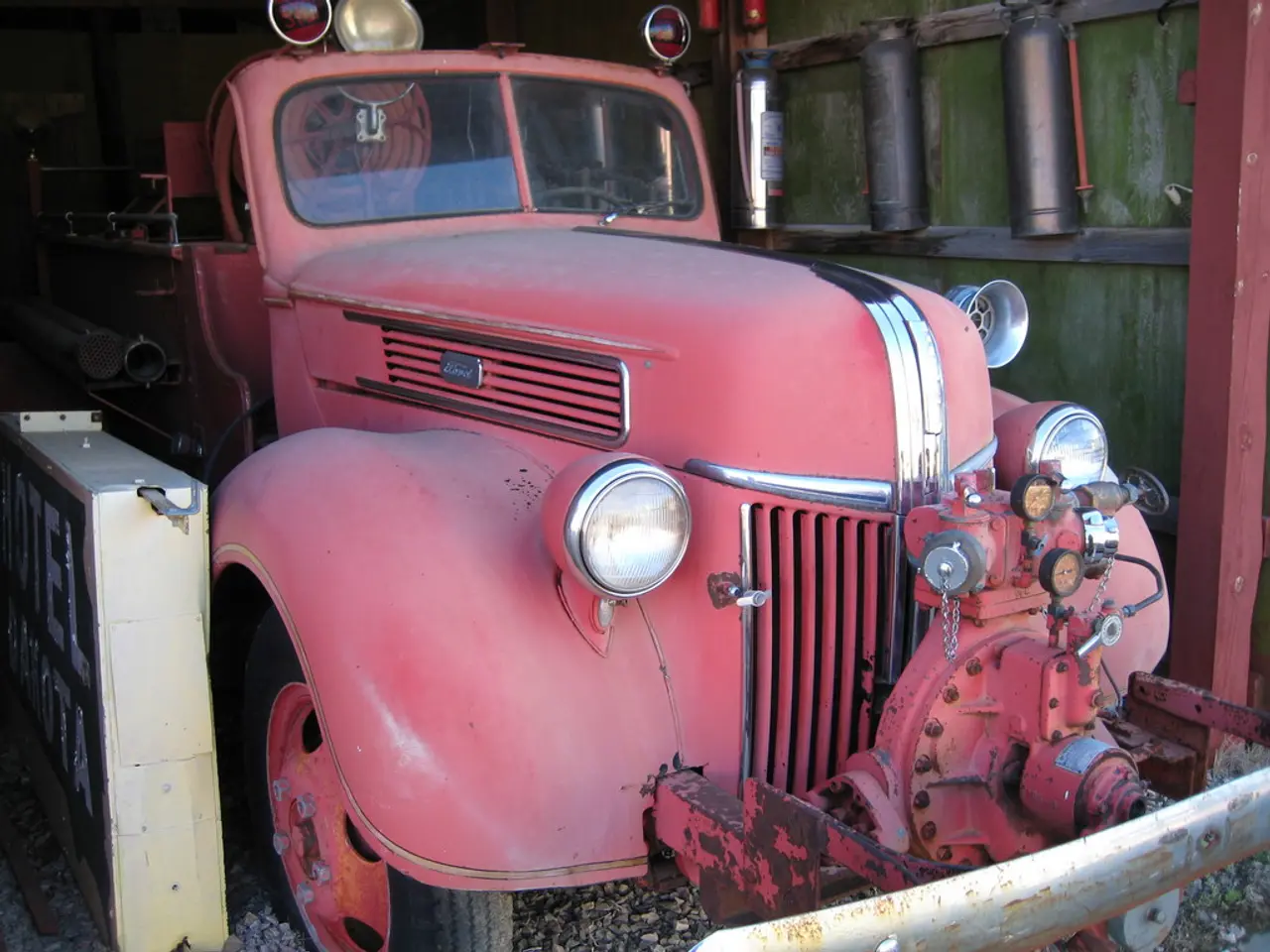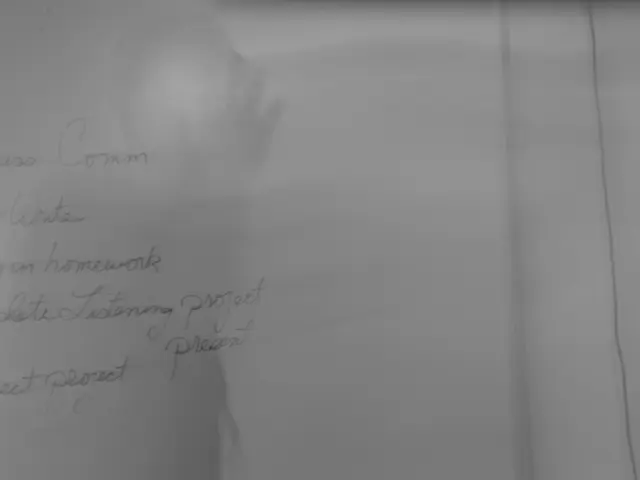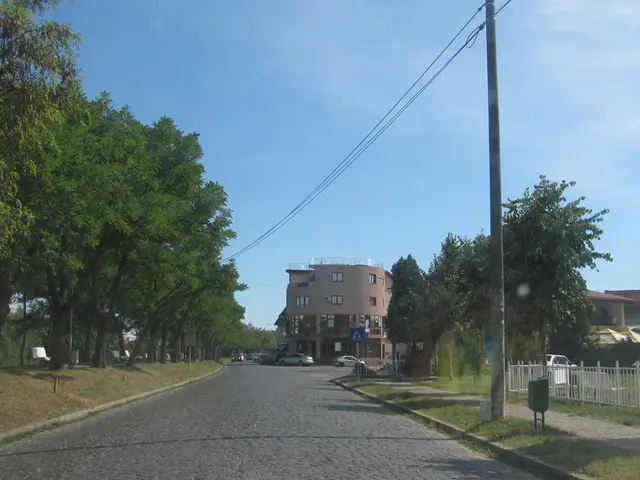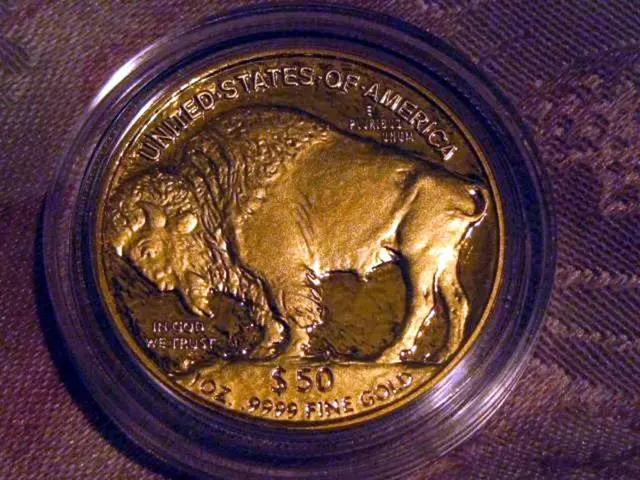Collaborative Initiative by AZL for Fire Safety Assessments on Electric Vehicle Battery Housings
AZL Aachen GmbH, a renowned research institution, has recently announced the launch of a new Joint Partner Project titled "Thermal Runaway Testing for Battery Casings - Benchmarking Systems for High-Gradient Heating and Hot Particle Blasting." This project aims to develop a realistic, reproducible fire testing environment for structural and functional materials used in electric vehicle (EV) battery housing systems.
Objective and Testing Method
The primary objective of this project is to simulate thermal runaway conditions experienced by lithium battery cells like LFP and NMC types. To achieve this, the project will employ a unique test bench that combines high-gradient flame exposure with controlled hot particle blasting, replicating severe fire conditions.
Participating Companies
AZL Aachen has a history of collaborating with various industry partners, including automotive Original Equipment Manufacturers (OEMs) such as Audi and BMW, tier suppliers, and material producers. While the exact list of companies participating in this project is not yet fully specified, the strong industry involvement is evident.
Expected Outcomes
The project is expected to deliver several key outcomes, including systematic benchmarking of various battery casing materials under different thermal and mechanical stress scenarios simulating actual application conditions. This will aid material development, qualification, and supplier evaluation.
Additionally, detailed test documentation, including thermal data and videos, will be provided. This documentation will help participants validate their solutions and gain insights into leading alternatives in the market.
Industry Sectors
The impact of this project extends beyond the automotive industry, as it also targets the aerospace sector and other sectors using battery storage systems.
Project Start and Future Developments
The project officially commenced on July 15, 2025. Companies interested in joining the project can request detailed project information or arrange an individual consultation meeting.
As the project progresses, participants will align on expectations, present their priorities, and help refine the testing focus at the initial meeting. Over 50 different materials, including metals, plastics, fibre-reinforced, coated, compact, and sandwich materials, will be tested and benchmarked.
This project represents a significant step towards standardized, application-relevant testing and safer EV battery designs. The test bench developed for this project combines high-gradient flame exposure and controlled hot particle impact, mimicking the complex conditions of thermal runaway events in modern cell technologies.
The resulting matrix supports materials development, qualification, and supplier evaluation, offering both strategic and technical value. The project also enables participants to pool resources, validate their own solutions, and gain insights into leading alternatives in the market.
As the project continues, we can expect further developments and advancements in fire safety standards and material innovation for EV battery casings.
[1] AZL Aachen GmbH. (2025). Thermal Runaway Testing for Battery Casings - Benchmarking Systems for High-Gradient Heating and Hot Particle Blasting. Retrieved from https://www.azl-aachen.de/en/news/thermal-runaway-testing-for-battery-casings-benchmarking-systems-for-high-gradient-heating-and-hot-particle-blasting
[2] AZL Aachen GmbH. (2025). Press Release: AZL Aachen Launches Joint Partner Project for Fire Safety Testing of EV Battery Casings. Retrieved from https://www.azl-aachen.de/en/press-releases/azl-aachen-launches-joint-partner-project-for-fire-safety-testing-of-ev-battery-casings
Read also:
- Rapid Construction of Rajasthan's 435 Megawatt Solar Power Plant in Eight Months Reduces Carbon Dioxide Emissions by Over 700,000 Tons
- Ford's Revisited Capri: A Contentious Revival for a Legendary Brand Name
- Rivian is developing a steering system without direct mechanical connection, along with rear wheel guidance (latest update)
- Driving 90 miles on I-35 in my fresh Tesla Model Y equipped with FSD, I witnessed the self-driving technology's striking impressiveness, prompting my cousin to contemplate purchasing one for his elderly father.








